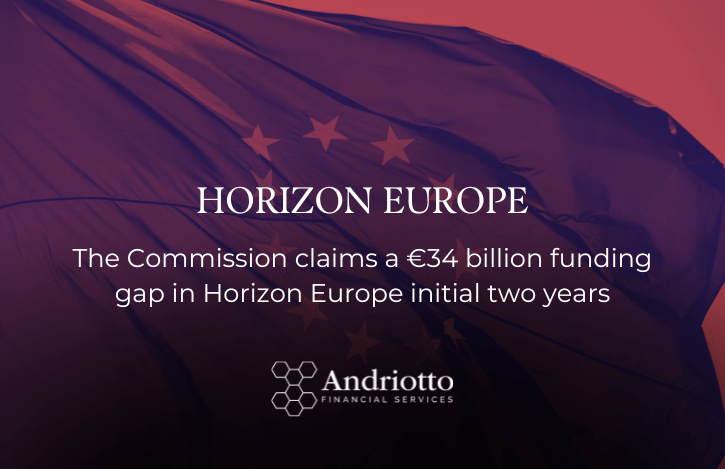A recent European Commission report examined Horizon Europe. The €95.5 billion program backs research together with innovation in Europe. It requires an extra €34 billion to fully fund all high-quality proposals from 2021-2022. Of those high proposals, 71% did not receive funding. That shows a slight improvement over Horizon 2020. In that program, 74% of high proposals lacked funding. At the same time, Europe faces growing challenges. Innovation must quicken green together with digital changes. The EU needs to secure its place in global tech competition. Strategic autonomy is crucial.
Maintaining technological leadership through Horizon Europe will be crucial in upholding the EU’s geopolitical influence. The report highlights that “a strategically autonomous EU accounting for 30% of global R&D is a very different prospect than a strategically autonomous EU responsible for 20% of global R&D.”
There is still a chance to redirect Horizon Europe. During the first two and a half years, the EU has spent slightly over €16.3 billion from the seven-year program, awarding over 5,500 grants. Additionally, 7,108 proposals have been selected for funding. However, according to the latest figures from the end of 2022, a significant portion of the budget remains to be allocated.
The report provides a basis for changes. It reviews Horizon Europe’s first three years. An analysis looks at research’s role in tackling future issues.
This report sets the stage for a plan outlining the trajectory of Horizon Europe for its final years, 2025-2027, which is scheduled for publication in the first quarter of 2024. It will be accompanied by initiatives such as new industrial partnerships.
Strategically Advancing Forward
Researchers have already expressed to the Commission that climate change, energy supply, as well as biodiversity loss should be prioritized in the latter part of Horizon Europe.
According to a survey results, 90% of respondents identified climate change as a top priority for the coming decade, followed closely by 88% who highlighted energy supply, and a close percentage expressed concern about biodiversity loss. Additionally, respondents emphasized the importance of healthcare, global industrial leadership, preparedness for disruptions, and social justice as high-priority challenges.
However, anticipation marks the near future with ongoing uncertainty and volatility. The Commission aims to prepare the bloc well to address unexpected crises and shifts in the global order.
Yet, some caution against excessively constraining research topics. Julien Chicot, senior policy officer at the Guild of European Research-Intensive Universities, raises concerns that an excessive focus on strategic issues may leave limited room for curiosity-driven research, which has historically played a crucial role in solving global challenges, such as the recent COVID-19 pandemic.
A multipolar world
The report recognizes the changing dynamics of global geopolitics, stating that the new world order is likely to be multipolar. It presents three potential scenarios:
1. closer collaboration among nations to address global issues;
2. the formation of “antagonistic groups” with limited collaboration; or
3. the emergence of openly hostile powers.
The supposition is that the poles of influence will likely be formed by the US, China, Russia, and the EU.
EU’s scientific power
The EU strongly impacts science. It creates 20% of global research with just 6% of people. However, the EU’s share of new patents has dropped in recent decades. In 2000, the EU had 31% of worldwide patents. That number fell to 19% by 2018. During the same period, the US saw its share fall from 38% to 22%. This shows China’s technology gains this century.
Regarding innovation, results from the 2022 European innovation scoreboard show that the EU ranks as the fifth top performer globally.
When it comes to R&D intensity (expenditure on research and development as a percentage of the gross domestic product, GDP), the EU has made progress, increasing from 1.81% of GDP to 2.32% over the past two decades.
However, the EU still lags significantly behind countries like Israel (5.4%), South Korea (4.8%) the US (3.5%), Japan (3.27%), and China (2.5%).
At AFS, we are passionate about fostering innovation and empowering ambitious minds to flourish. Our mission is to provide best-in-class financial services for traditional and crypto deals, exploit European grants, and use quantitative methods to improve clients’ performance. We aim to help our customers unlock their full business potential.
Are you looking to fund your next venture or unlock grant opportunities?
Contact us at [email protected]!


